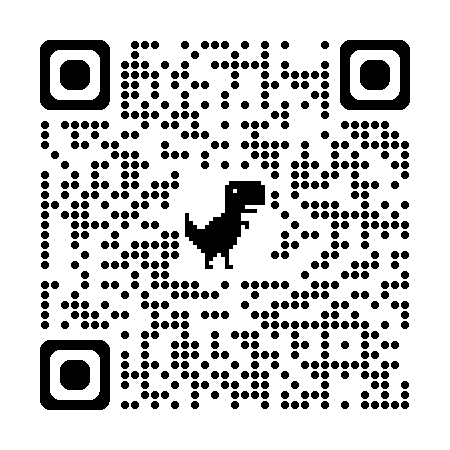Social Media and Political Literacy of Voters in Rural Neighbourhoods in Ethiope East Local Government Area of Delta State, Nigeria
Keywords:
political literacy, social media, political participation, uses and gratifications theory, rural communityAbstract
Background: Social media has evolved into a vital and useful instrument for political literacy and communication, particularly during election seasons. Despite social media's global influence in fostering political literacy and engagement, scholars have focused less on first-time and eligible voters in Nigeria's local neighbourhoods.
Objective: The study examined the effect of social media on the political literacy of first-time and eligible voters living in rural communities in the Ethiope East local government area of Delta State, Nigeria.
Methodology: The study employed a cross-sectional research design and gathered data from 275 respondents living in landlocked regions in the Ethiope East local government area of Delta State. The respondents were sampled using a simple random sampling technique. The data were analysed using t-test, correlation, and linear regression analysis.
Result: Social media positively and statistically significantly impact the political literacy of first-time and eligible voters living in rural neighbourhoods in the Ethiope East regional government area of Delta State, Nigeria. This is because of increased political literacy and engagement. Thus, social media is becoming an increasingly powerful tool for political electioneering and social engineering.
Conclusion: Social media significantly influences the political literacy of first-time and eligible voters living in rural neighbourhoods in Nigeria.
Unique Contribution: The study has contributed to a better understanding of the significant influence of social media on the political literacy of first-time and eligible voters living in rural communities in Nigeria.
Key Recommendation: Social media organisations should establish fact-checking desks in order to handle the flood of false information that will arise in the run-up to the general elections in 2027.
References
Akinyetun, T. S., Odeyemi, D. D. & Alausa, J. A. (2021). Social media and electoral violence in Nigeria: Sustainable development goal 16, a panacea? KIU Interdisciplinary Journal of Humanities and Social Sciences, 2(2), 169 – 194.
Alodat, A. M., Lamis, F. A., & Muwafaq, A. H. (2023). Social media platforms and political participation: A study of jordanian youth engagement. Social Sciences, 12 (402), 1 – 18.
Alquraan, H., Abu-Shanab, E., Banitaan, S., & Al-Tarawneh, H. (2017). Motivations for using social media: Comparative study based on cultural differences between American and Jordanian students. International Journal of Social Media and Interactive Learning Environments, 5(1), 48 - 61.
Ayeni, T. P. (2019). The role of social media in voter education in Nigeria. American Journal Comptuter. Science, Information and Technology, 7 (33), 1 - 3.
Baym, N. K. (2015). Personal connections in the digital age. New York: John Wiley & Sons.
Bello, S., & Kolawole-Ismail, B. (2017). Social media and political participation in Nigeria: A theoretical perspective. Ebonyi State University Journal of Mass Communication, 4(1), 149 - 164.
Davies, R. (2014.) Social media in election campaigning. European Parliamentary Research Service Blog, 12, 1 - 8.
Deddy, S. M., Zulfadli, M., & Zuhri, A. I. (2023). The role of social media in increasing political literacy of beginning voters. Malikussaleh Social & Political Reviews, 4(2), 77 – 81.
doris+dokua+sasu+pdf&oq=doris+dokua+sasu+pdf&gs on 25th February, 2024.
Ekwueme, M., & Folarin, S. (2017). Role of social media in electioneering: The case of the Nigerian 2015 presidential election. Proceeding of the Covenant University Conference on e-Governance in Nigeria (CUCEN2017), pp. 299 - 311.
Igbinedion, O. C., & Ajisebiyawo, A. S. (2023). The influence of social media on voters’ choices during the 2023 presidential elections in Nigeria. IRE Journals, 7(3), 252 – 264.
INEC. (2023). Summary of registered voters & PVCs collected in Delta State. Abuja: INEC Publications.
Katz, E., Blumler, J. G., & Gurevitch, M. (1974). Uses and gratifications research. The Public Opinion Quarterly, 37(4), 509 - 523.
Li, H., & Chen, G. M. (2018). Uses and gratifications theory in the 21st century: Applications in the digital age. New York: IGI Global Publishers.
Madueke, O., Nwosu, c., Ogbonnaya, c., & Anumadu, A. (2017). The role of social media in enhancing political participation in Nigeria. IDOSR Journal of Arts and Management, 2(3), 44 - 54.
Ohme, J. (2019). When digital natives enter the electorate: Political social media use among first-time voters and its effects on campaign participation. Journal of Information Technology & Politics, 16(2), 119 - 136.
Okoro, N., & Nwafor, K. A. (2013). Social media and political participation in Nigeria during the 2011 general elections: The lapses and the lessons. Global Journal of Arts, Humanities and Social Sciences, 1, 29 – 46.
Omotayo, F. O., & Folorunso, M. B. (2020). Use of social media for political participation by youths in Oyo State, Nigeria. Journal of Democracy, 12(1), 133 – 158.
Opeibi, T. (2019). The twitters phere as political engagement space: A study of social media usage in election campaigns in Nigeria. Digital Studies/Le champ numérique, 9(1), 1– 32.
Sasu, D. D. (2023). Number of active social media users in Nigeria 2017-2023. Retrieved from
Smith, T. (2009). Social media sites use for the 2008 United States elections. New York: John Wiley & Sons.
Unwuchola, A. A., Adinlewa, T., & Udeh, K. (2017). An appraisal of the role of ICT as a tool for participatory democracy in Nigeria. Media and Communication Current, 1(1), 69 -87.
Yamamoto, M., Kushin, M. J, & Dalisay, F. (2015). Social media and mobiles as political mobilization forces for young adults: Examining the moderating role of online political expression in political participation. New Media and Society, 17(6), 880-898.
Downloads
Published
How to Cite
Issue
Section
License
Copyright (c) 2024 Vincent Eseoghene Efebeh, Felix Orishede, Francis Ayegbunam Ikenga

This work is licensed under a Creative Commons Attribution-NonCommercial-ShareAlike 4.0 International License.



